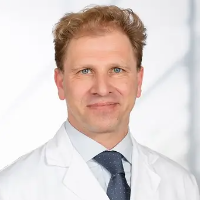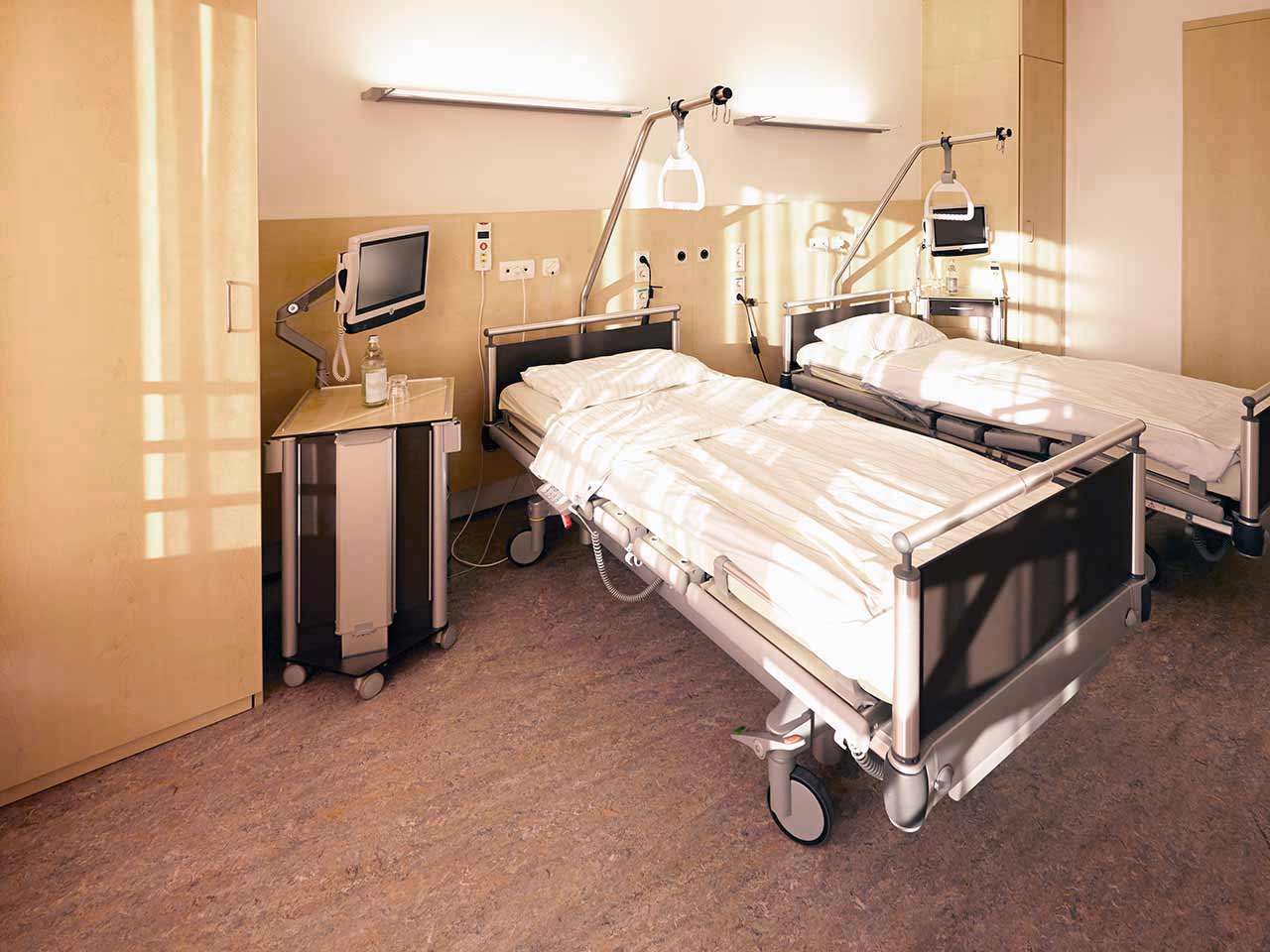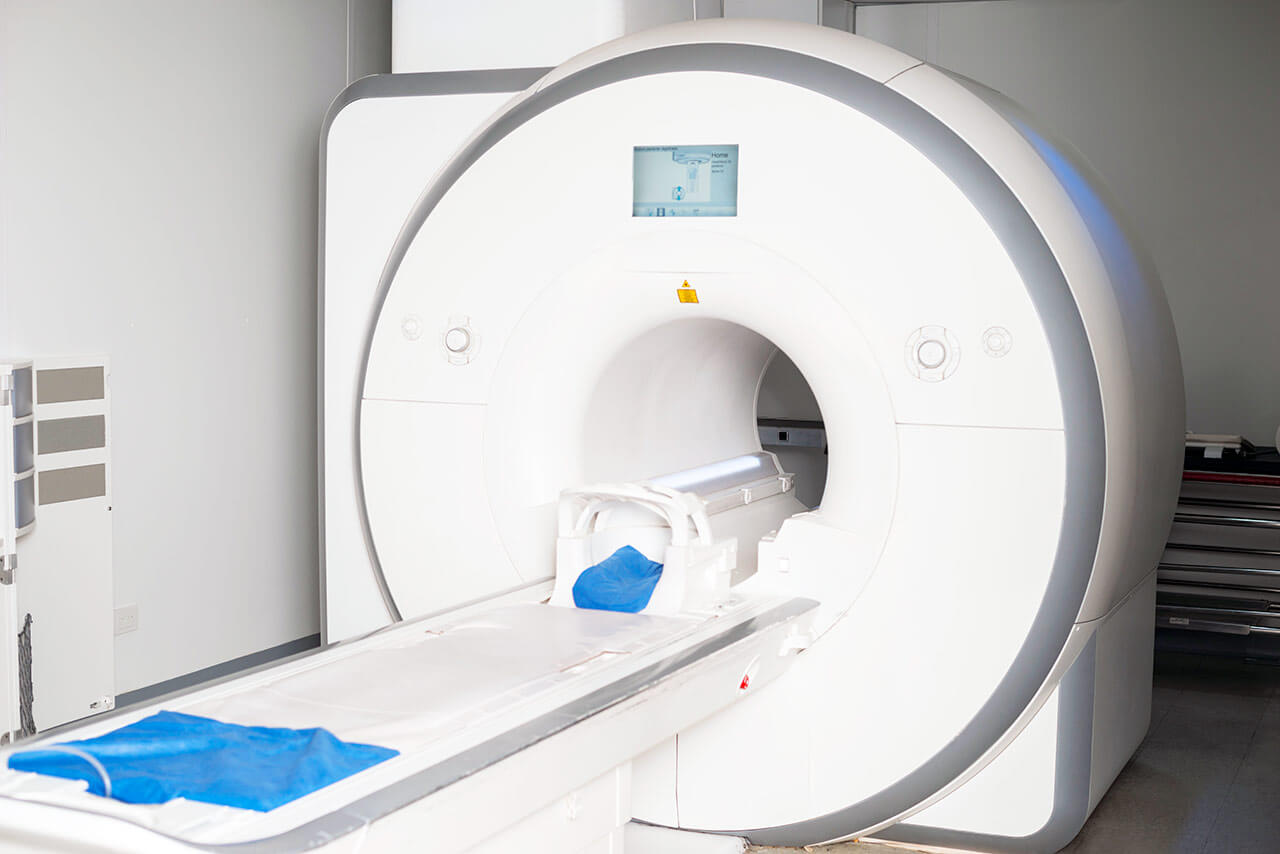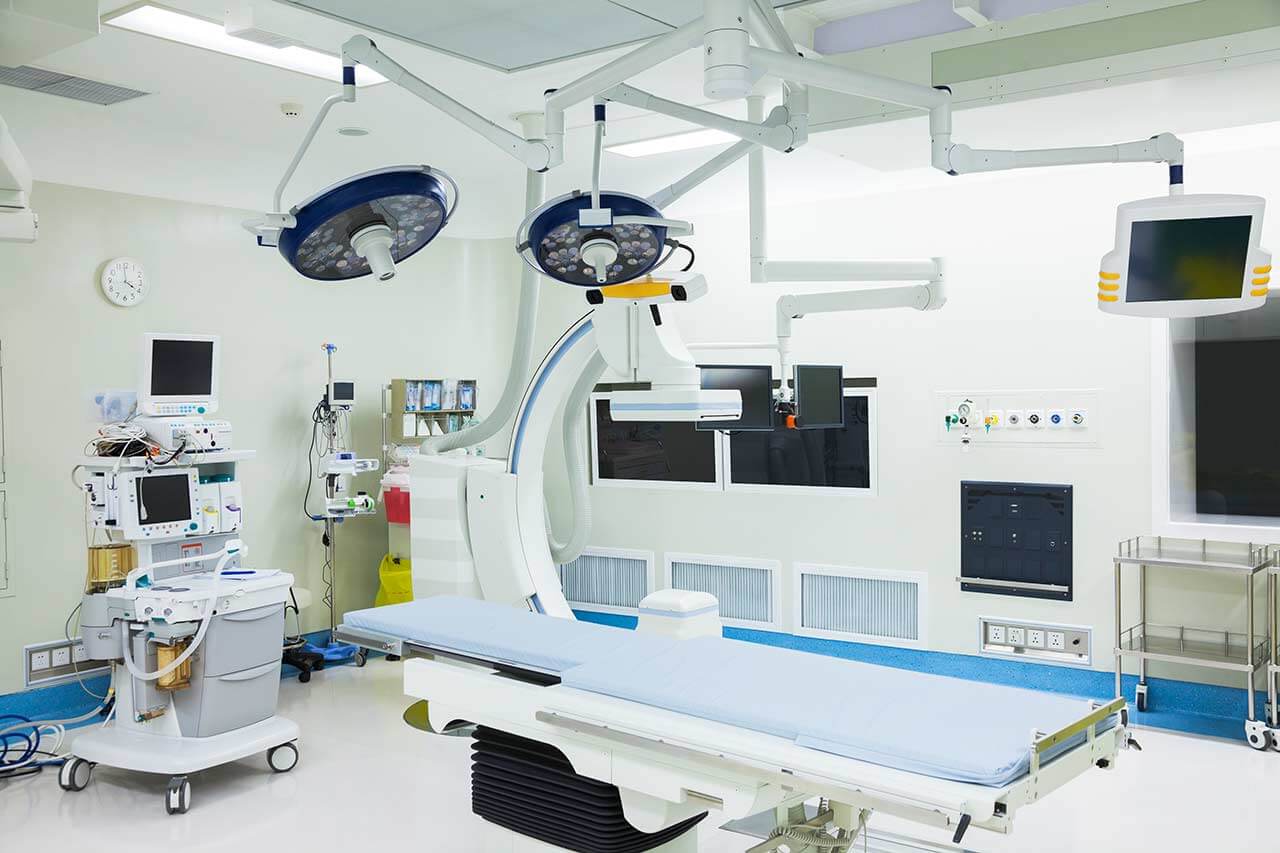
The program includes:
- Initial presentation in the clinic
- clinical history taking
- review of medical records
- physical examination
- neurological examination
- laboratory tests:
- complete blood count
- biochemical blood test
- inflammation markers (CRP, ESR)
- blood coagulation analysis (aPTT, PT, INR)
- electrophysiology study (if indicated clinically)
- CT/MRI scan
(if indicated clinically, additional cost is 650/1200€) - differential diagnosis with other neurological diseases
- nursing services
- consultation of related specialists
- treatment by chief physician and all leading experts
- explanation of individual treatment plan
(the cost of medicines is not included)
Required documents
- Medical records
Service
You may also book:
 BookingHealth Price from:
BookingHealth Price from:
About the department
The Department of Neurology and Epileptology at the Nuremberg Hospital provides high-quality medical services for the diagnostics and treatment of diseases of the nervous system. The department is particularly competent in the field of medical care for patients with epilepsy and also has vast experience in the treatment of stroke, multiple sclerosis, neuropathies, myopathies, and Parkinson's disease. Patients with rare neurological disorders, including ataxia, inflammatory brain diseases, and metabolic disorders affecting the nervous system, are admitted here. The medical team consists of more than 100 specialists, including 38 highly specialized physicians. In most cases, the medical facility provides conservative treatment, the basis of which is a course of drug therapy. The intake of medicines can be complemented with physiotherapy, manual therapy, massage, etc. The department's medical team annually treats about 4,000 inpatients and more than 1,390 outpatients who do not need a hospital stay. The Head Physician of the department is Prof. Dr. med. Jan Liman.
The department is one of the leading German medical facilities specializing in the treatment of stroke, which is an acute violation of the blood supply to the brain. Special attention is paid to medical care for patients with ischemic stroke, which accounts for more than 80% of cases of the pathology. Stroke patients are treated at a specialized Stroke Unit, which is part of the department. The effectiveness of medical care for stroke patients depends largely on the promptness of therapeutic measures. The chances of a successful treatment outcome and maximum preservation of brain functions are very high if the therapy is started within 4,5 hours after stroke development. The gold standard for ischemic stroke treatment is lysis therapy, which involves administering drugs through a venous approach using catheter-based techniques to dissolve blood clots that interfere with the normal blood supply to the brain. In some cases, a thrombectomy may be required for stroke treatment. The essence of the procedure is the direct removal of the clot using endovascular techniques under imaging guidance. A thrombectomy is performed by the department's neurologists in cooperation with neuroradiologists. In addition, the department's specialists can combine lysis therapy and thrombectomy. This approach to the treatment of ischemic stroke is currently innovative, and its high efficiency is confirmed by the results of many large clinical trials.
The department's neurologists almost daily provide medical care to patients with multiple sclerosis, inflammatory and degenerative diseases of the central nervous system, etc. Multiple sclerosis causes movement disorders, coordination disorders, sensory disorders, and visual impairments up to total blindness. A complex of diagnostic procedures to confirm or exclude the pathology includes the study of the patient's medical history, a general clinical examination, magnetic resonance imaging, and cerebrospinal fluid analysis. Electrophysiological studies may be additionally performed if required. Once the diagnosis is confirmed, an optimal treatment regimen will be elaborated for the patient, which may include the intake of pills, intravenous infusions of cortisone or monoclonal antibodies, plasmapheresis, and other therapeutic procedures. Physiotherapy also has a positive effect on the treatment outcome.
The department's special focus is also on the treatment of epilepsy in adults. This neurological disease is characterized by recurrent seizures accompanied by impaired motor and cognitive functions. The cause of epileptic seizures is excessive electrical activity in neurons. If epilepsy is suspected, the patient should undergo comprehensive diagnostics, which include blood tests, electroencephalography, computer tomography, magnetic resonance imaging, etc. The department's neurologists use individually elaborated drug therapy regimens to manage epilepsy. As a rule, the patient is prescribed one anticonvulsant drug at the optimal dosage. At the same time, the course of drug therapy is quite long, so it will be necessary to take the prescribed drug for at least 2-3 years. In most cases, conservative therapy gives good results and helps patients reduce the frequency of epileptic seizures, up to their complete cessation. However, in some cases, drug therapy is ineffective, so the doctors resort to surgical interventions such as temporal lobectomy, deep brain stimulation, vagus nerve stimulation, etc. The decision on the advisability of an operation for epilepsy is made by a multidisciplinary board of neurologists and neurosurgeons.
The department's key clinical focuses include:
- Diagnostics and treatment of stroke
- Diagnostics and treatment of multiple sclerosis
- Diagnostics and treatment of Parkinson's disease
- Diagnostics and treatment of epilepsy
- Diagnostics and treatment of neuromuscular diseases: neuropathies and myopathies
- Diagnostics and treatment of rare neurological disorders: ataxia, inflammatory diseases of the brain or cerebral vessels, and metabolic disorders affecting the nervous system
- Diagnostics and treatment of other neurological disorders
Curriculum vitae
Higher Education and Postgraduate Training
- 1996 - 2002 Medial studies, RWTH Aachen University, Germany; University of Sydney, Australia.
- 2003 Thesis defense.
- 2015 Habilitation in Neurology.
Professional Career
- 2002 - 2012 Assistant Physician, Department of Neurology, University Hospital Goettingen.
- Since 2012 Senior Physician, Department of Neurology, University Hospital Goettingen.
- Since 2015 Managing Senior Physician, Department of Neurology, University Hospital Goettingen.
- Since April 2022 Head Physician, Department of Neurology and Epileptology, Nuremberg Hospital.
Certificates and Additional Qualifications
- Additional qualification in Emergency Medicine, Medical Association of Lower Saxony.
- Certified Instructor for Endoscopic Evaluation of Swallowing from the German Neurological Society (DGN).
- Certificate (Level 3) in Vascular Ultrasonography from the German Society of Ultrasound in Medicine (DEGUM).
- Additional qualification in Special Neurological Intensive Care.
Photo of the doctor: (c) Klinikum Nürnberg
About hospital
According to the reputable Focus magazine, the Nuremberg Hospital ranks among the top German medical facilities!
The hospital is one of the largest, highly specialized medical centers in Europe and positions itself as the maximum care hospital. The healthcare facility is an academic hospital of the Paracelsus Medical University in Nuremberg. It houses 42 departments, institutes, and highly specialized centers focusing on various medical fields. All the hospital's employees work hand in hand for the benefit of their patients. The specialists strive to provide top-class medical care for every patient. Moreover, the medical team always shows a humane attitude and understanding towards the patient's life situation, making every effort to support them during the entire therapeutic process.
The total number of beds in the hospital is 2,233. The medical team consists of more than 8,400 employees, including many world-famous doctors and professors who had their clinical training at the best medical facilities in Germany, other European countries, and the USA. The hospital admits more than 100,000 inpatients and more than 170,000 outpatients annually. The number of patients who come to the hospital steadily increases every year, which is the best confirmation of its high standards and outstanding treatment results.
The cornerstone of successful clinical practice is state-of-the-art technical infrastructure. The hospital offers its patients innovative technologies such as the Da Vinci surgical system, devices for stereotactic procedures, intraoperative radiation therapy, angiography, PET CT devices, high-intensity focused ultrasound, 64-slice CT scanners, and other advanced medical devices. The combination of cutting-edge technical facilities and the high competence of the physicians allows for the provision of effective treatment even in the most complex cases.
The Nuremberg Hospital is undoubtedly one of Germany's leading medical facilities, where patients benefit from modern infrastructure, precise diagnostics, effective treatment, and responsive care.
Photo: (с) depositphotos
Accommodation in hospital
Patients rooms
The patients at the Nuremberg Hospital live in comfortable single and double rooms. Each patient room is equipped with an ensuite bathroom with a shower and a toilet. Standard rooms include an automatically adjustable bed, a bedside table, a wardrobe for storing clothes, a table and chairs for receiving visitors, a TV, and a radio. The hospital also offers Wi-Fi.
If desired, patients can live in enhanced-comfort rooms. Such patient rooms are more spacious, and their furnishings correspond to the level of an upscale hotel.
Meals and Menus
The patients at the hospital are offered tasty and balanced meals three times a day: breakfast, lunch, and dinner. The patients have a daily choice of three dishes for lunch and dinner, while breakfast is served as a buffet.
If, for some reason, you do not eat all foods, you will be offered an individual menu. Please inform the medical staff about your food preferences prior to treatment.
Further details
Standard rooms include:
Accompanying person
Your accompanying person may stay with you in your patient room or at the hotel of your choice during the inpatient program.
Hotel
You may stay at the hotel of your choice during the outpatient program. Our managers will support you for selecting the best option.





